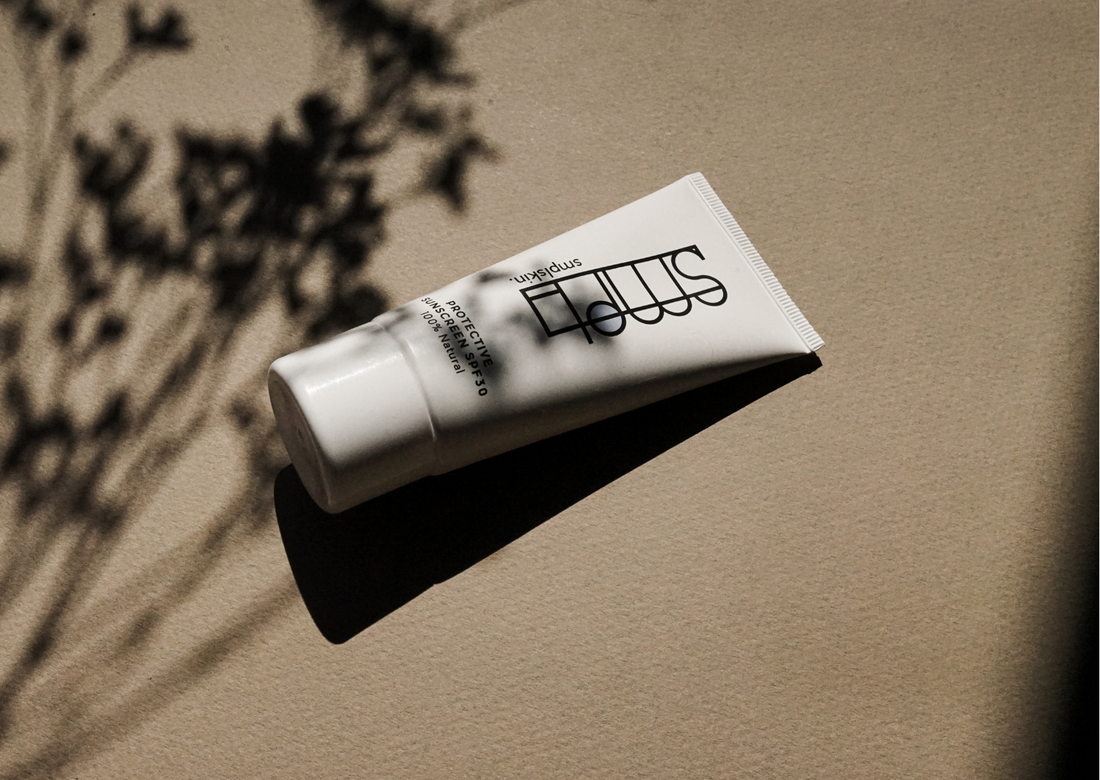
Chemical filters in your sunscreen? Preferably not!
Share
It is now known that applying SPF is better than not applying sunscreen at all. To prevent skin aging, skin damage and even skin cancer, it is advisable not to go into the sun unprotected. Therefore, always wear covering clothing and at least SPF 30 in your skin care, summer and winter.
But sometimes it's difficult to choose with all those different types of sunscreen. Smear, spray or roll? Chemical or mineral sun filters? There is no product that is criticized as much as sunscreen. We will tell you more about it.
Chemical sunscreens
Of course, the most important thing is that sunscreen protects us from the sun. Let's start by saying, again: any form of sunscreen is better than no sunscreen at all!
However, most sunscreens contain one or more chemical sun filters. These filters penetrate your skin and absorb UV radiation. And because of this, your skin may be protected from the sun, but these chemical sun filters also enter your bloodstream via the skin, which can potentially have consequences.
The risk of chemical sunscreens
Check your sunscreen for the following ingredients: octisalate, oxybenzone, homosalate, octinoxate, octyl dimethyl PABA and octocrylene (for more background click here) . These chemicals are said to disrupt hormones and can have a negative effect on our reproductive organs. Thyroid problems can also occur. Are you breastfeeding? Did you know that you can find chemical sun filters in breast milk? Oxybenzone in particular is very easily absorbed into our body and then behaves like estrogen.
In addition, the chance of a skin allergy is very high with these chemical sunscreens, since they are absorbed by the skin. This means that sensitive skin does not always react well to chemical sunscreens. That is why we would not advise a chemical sunscreen for babies and children.
Finally, these substances are also harmful to our planet: if you take a dip in the water, you always leave a residue of sunscreen in the sea, which damages the coral.
Other ingredients to consider in your sunscreen
In addition to chemical sunscreens, there are other ingredients to consider in your sunscreen, especially for small children and if you have sensitive skin. The recognizable smell of sunscreen is a reason for many people to apply it. However, these added perfumes (synthetic but also natural) do not combine well with the sun. Think of citrus scents, for example. These can cause a sun allergy or even skin aging and pigment spots. So use a perfume-free sunscreen , would be our advise.
In addition, your skin has to endure extra in the sun and therefore needs nourishment and hydration. That is why you want to stay far away from alcohol in your sunscreen. Most alcohol types in your cosmetics dry out your skin and therefore contribute to a faster aging skin.
Natural mineral sunscreen
We prefer a mineral sunscreen over a chemical sunscreen. A mineral sunscreen, or natural sunscreen, often contains zinc oxide or titanium dioxide. A natural sunscreen contains no synthetic substances, and therefore no substances could enter your body that could potentially cause hormonal disruptions.
In addition, natural sunscreen works in such a way that you are protected immediately after applying it (so no waiting half an hour, like with chemical sunscreen). It puts a protective layer on the skin that directly reflects UV radiation from the sun.
We don't want to brag, but SMPL sunscreen is easy to apply, 100% natural and completely safe for sensitive skin.
Want to know more about mineral sunscreens? Click here !
